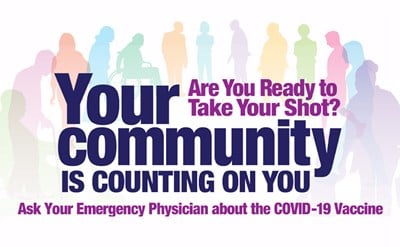WASHINGTON, D.C.—Emergency physicians care for anyone, anytime, regardless of what language a patient speaks. In 2015, more than one in five Americans spoke a language other than English as their first language at home, according to the U.S. Census. Language barriers during a medical emergency have the potential to compromise care, according to a new analysis with case studies in Annals of Emergency Medicine.
"Access to quality medical interpreter services is a public health issue," said Jay M. Brenner, MD, director, Upstate University Medical Campus Emergency Department and lead study author. "Using trained interpreters has been shown to lower readmissions and limits the possibility of patient misunderstanding, physician misdiagnosis or mistreatment."
Underutilization of interpreter services may be due to lack of hospital resources or lack of trained and available personnel, or because no specific guidelines exist for emergency health care providers in this area, the authors note in “Use of Interpreter Services in the Emergency Department.”
Many states do have laws for healthcare providers to provide access to language services. For example, Massachusetts requires that interpreter services be available at its facilities. New Jersey and Rhode Island tie hospital licensure to provision of services. Some states have laws around communication for specific conditions such as HIV, cancer or reproductive health.
Emergency departments employ professionals with various degrees of training based on state or institutional requirements. In some instances, a provider on staff is a trained medical interpreter. In other instances, physicians rely on technology such as computer interpretation programs. These tools may have certain inherent biases or limitations, the authors note.
To improve language services in the emergency department, the authors suggest improving physician education with respect to both training and sensitivity; increasing community engagement to empower local residents to know their rights before they have an emergency; partnering with local services to identify and support specific local needs; and developing more comprehensive policies that support both education and funding for interpreting services.
“The decision to provide language assistance can impact patient outcomes,” said Dr. Brenner. “There are practical limitations if you don’t have a trained expert readily available. In time-sensitive emergencies, you do the best you can.”
 American College of Emergency Physicians
American College of Emergency Physicians







